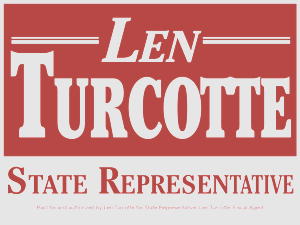FISCAL DISCIPLINE
We must run New Hampshire’s budget just as most of do in our own households. We can not spend more than we take in and that which we do spend must be done so in an efficient manor. In many respects, we’ve become an instant gratification society with an entitlement mentality. We borrow money to buy things we can’t afford and in many cases, do not need. Some believe government should provide “free benefits” that go far beyond the temporary safety net originally intended. Clearly, there’s no such thing as “free”. Everything received from bureaucracies is paid for by you and I, the taxpaying citizens of New Hampshire. The entitlement, tax and spend perspective must change. We must convince our neighbors and our elected representatives that living frugally and within our means is an absolute necessity.
Like many other states, New Hampshire has a large unfunded public pension liability. There are ways that this problem can be fixed before the public employees see their plans default or the taxpayer is forced to bail out the retirement system. It will take courage and open eyes on the part of all parties. Having lived through the failure of a Defined Benefit Plan (like the NH public employee’s plan), I have witnessed first hand the devastation it can cause. But I also know how these failures can be prevented.
EFFICIENT GOVERNMENT
Smaller, more efficient government is a necessary pursuit and benefits every citizen of New Hampshire in the form of lower taxes and overall fees. Where there is waste and redundancy, we must eliminate it. Where there is fraud in social programs, we must eliminate it. We need to constantly review and monitor public employee wages and benefits and ensure they’re in line with the private sector. Having recently witnessed new classes of “essential and non-essential” employees, I think it shows there may be excesses in bureaucracies that can be solved through attrition. Where government can be better served by private enterprise, we must put that work out to bid.
My work obligations occasionally bring me to Europe where unemployment rates prior to recent events in some countries were a staggering 25%. I frequently read their newspapers and watched their news on television. Too much spending and borrowing, unrealistic social benefits and entitlements, bloated bureaucracies, and a strangling regulatory environment have lead to near collapse in several countries. The financial mess in the Euro zone may be a precursor to our own destiny if we fail to act responsibly.
SOCIETAL AND SOCIAL DISORDER
Self-sufficiency vs. Governmental dependency
Decades ago, social safety nets were implemented as relief programs, meant to provide a temporary hand in difficult times. Since that time, they have evolved from relief into welfare, then entitlements and finally to a point where now some believe that these programs are long-term or permanent rights. The evolution has been slow and insidious, but constant. We must persuade and advocate that welfare and social programs are there for the individuals who truly need them, and as a temporary relief as they were originally intended. We need to promote self-sufficiency and independence from bureaucratic handouts.
We must also ensure bureaucracies do not incentivize dependency. We have all heard the recent stories where unemployment benefits are so high that many are choosing to stay unemployed rather than return to work for less money. That is simply a perverse result from politician’s haste.
Right to work – A Unique Perspective
A vast majority of all citizens statewide (as well as in Strafford County) endorse New Hampshire as a “Right to Work” state. Past polls crossed all party and union membership lines.
As a conservative Republican who is also a member of the Allied Pilots Association (the union that represents the pilots of American Airlines), In three previous house sessions, I argued strongly for “Right to Work” legislation during debate. This does not mean I am anti-union, only that I believe each individual should have the right to join a union, or not.
A Supreme Court decision in 2017 (Janus vs. AFSCME) made all public sector unions nationwide subject to RTW laws. Since private sector unions make up a very small percentage of unions in total, most of country now is RTW. In that case, the US Supreme Court “restored the First Amendment rights of millions of public sector employees—giving them a voice and a choice when it comes to union membership. The decision will force unions to better represent workers and their interests in order to prevent membership decline.”
